
Christina Mills
Executive Director
California Association of Area Agencies on Aging
Committee Member

Songhai Armstead
Judge Armstead (Ret.) is a longtime advocate for the underserved and a justice system innovator. Before this appointment, Judge Armstead, a retired Superior Court judge, was the first leader of the Alternatives to Incarceration Office, which is now part of Los Angeles County Justice, Care and Opportunities Department (JCOD). Judge Armstead and her team launched JCOD on November 1, 2022, after the Board of Supervisors established the department in March of that same year. Judge Armstead overcame early childhood trauma and her own lived experience to attend the UCLA School of Law where she was the first–ever African American woman elected student body president in the post–209 environment. As a criminal courts judge, in addition to general cases, Judge Armstead also heard ODR, mental health, gang diversion and other specialty and diversion cases. Throughout her career, Judge Armstead has created new programs to break the cycle of incarceration focused on helping people get treatment and housing to improve their lives. Judge Armstead experienced being unhoused as a runaway youth and is honored to now serve on the Advisory Committee for the California Interagency Council on Homelessness. She is eager to assist pushing forward solutions to reduce homelessness, in Los Angeles County, California and across the country.

Lauren Carden
Lauren Carden is the Director of California Housing Advocacy at Justice in Aging, where she leads the organization's statewide efforts to prevent and end homelessness among older adults and people with disabilities. Her work centers on expanding access to safe, affordable, and accessible housing that supports aging in place and upholds the dignity and independence of older adults and people with disabilities.
Lauren brings over a decade of experience as a legal aid attorney in both rural and urban communities throughout California, where she represented low–income tenants and homeowners in a broad range of housing matters. Her direct services work continues to inform Justice in Aging's policy priorities, ensuring that the organization's advocacy is responsive to the needs of older adults and people with disabilities. Lauren has expertise in a range of housing–related legal matters, including eviction defense, fair housing enforcement, and federal subsidized housing programs.
Lauren is excited to join the Cal ICH Advisory Committee to help shape statewide strategies that address the needs of older adults and people with disabilities who are experiencing or at risk of homelessness. Lauren looks forward to collaborating with the other Advisory Committee members to help guide and inform the Council.

Mary Maldonado
Mary grew up in a small town outside of Fresno called Raisin City, surrounded by countryside and grape growers. Her early life on a farm full of animals shaped her character by teaching her to value hard work and responsibility. She still loves the feeling of being out in open spaces, and the peace and quiet that comes with it.
She currently lives in an encampment community in Hanford, CA. She is proud of the way her community takes care of itself, keeping the encampment clean and sticking by each other. Her work with the Cal ICH LEAB is inspired by her own lived experiences and by the lives of the people around her. She sees an urgent need for resources and funding to help people find places to live inside, but also to protect those who are forced to live outside. She wants to work for dignity, respect, and basic needs like water, food, and safe places to be for people in encampments.
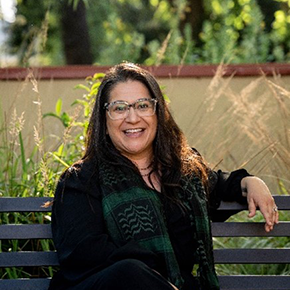
Alicia Sebastian
Alicia H.F. Sebastian is the Executive Director of the California Coalition for Rural Housing (CCRH), where she supports advocacy and policy efforts rooted in community knowledge and aimed at advancing affordable housing and infrastructure for rural, agricultural, and Tribal communities across California.
With more than 20 years in the nonprofit and public sectors, Alicia has worked alongside community–based organizations, Tribal governments, and local jurisdictions to strengthen programs that respond to local needs. She previously held leadership roles at CCRH and the California Department of Housing and Community Development (HCD), where she helped manage federal housing programs and led rural equity initiatives.
Her background includes experience in policy advocacy, program design, grant management, technical assistance and capacity building, and coalition–building. Alicia has also served on several equity–focused boards and coalitions, including the CA Interagency Council on Homelessness Equity Working Group, Sacramento Housing Alliance, the California Asset Building Coalition, and the North Sacramento Community Development Corporation.
Raised in rural California, Alicia draws from her personal and professional experiences to support community–driven solutions. She holds a Master's in Nonprofit Management and a BA in Community Studies. She lives in Sacramento with her wife, their three children, a dog, and three cats.

Dachelle Kendrick
Dachelle is a dedicated and visionary leader serving as the Domestic Violence Program Manager for SCADP Inc. (Angel Step Inn), bringing over seven years of frontline experience addressing domestic violence and its many intersections—including substance use, homelessness, human trafficking, and mental health. A passionate advocate for holistic, survivor–centered healing, she emphasizes sustainability and systems change to break cycles of abuse and marginalization.
Dachelle's academic foundation includes degrees in Psychology of Substance Abuse and Human Services with a concentration in Mental Health Recovery. She is currently pursuing her Master's in Public Administration with a specialization in Nonprofit Management, deepening her commitment to impactful leadership and structural reform.
As a thriving survivor herself, Dachelle brings lived experience, empathy, and bold vision to her work—using her voice to shift narratives and uplift others navigating trauma. Her civic leadership spans local, county, and state systems: she serves as Chair of the Los Angeles City Domestic Violence Alliance, Co-Chair of the LA County Domestic Violence Council's Lived Experience Advisory Peer Group, and At–Large Director on the California Partnership to End Domestic Violence Board. Through these roles, Dachelle works to influence policy, build survivor power, and bridge service gaps across California.

Joseph L. James
Honorable Joseph L. James, the Yurok Tribal Chairman is from the village of Sregon along the Klamath River in Northern California. Chairman James has worked for Tribal Governments for the last 24 years in the areas of fisheries, water policy and law, infrastructure, protection of cultural resources, economic development, and leadership. He has served as the Yurok Tribe’s Transportation Manager, East District Councilmember, elected as the Chairman in October 2018 and Yurok Economic Development Board President and reelected to his second term as Chairman in October 2021. As part of his Nation-building actions, Chairman James has expanded the economic development portfolio, protected the Yurok Tribe’s natural and cultural resources and have furthered the importance of educational achievement for tribal youth, and instituted dynamic elder’s programs and services.

Kevin Klahn
Kevin Klahn was born and raised in a hardworking town and family in Vallejo, California. He learned at an early age the value of hard work and after 41 years in the painting trade, he's now retired and a full–time student at Sacramento City College. Majoring in Sociology he hopes to transfer to Sacramento State and pursue his Bachelor degree.
Kevin spent many years battling alcoholism, mental health, homelessness, and the criminal justice system at the county and state level of incarceration. He draws his empathy and strength from decades of service helping the unhoused population, from Visalia to Placerville. With decades of sobriety, Kevin hopes his experience, strength, and hope can rise up and become a voice for those whom are most vulnerable sharing similar experiences. Kevin is passionate about advocating for the unhoused population antinomy valuable resources. Kevin dreams of helping the incarcerated youth population upon completion of his graduation or in the near future. Facing homelessness these past two years, Kevin now has a place to call home in a wonderful tiny cabin home shelter in Sacramento, CA through a non–profit organization known as First Step Communities. With lived experience, history of alcoholism, mental health, and encounters with the criminal justice system, Kevin is ready to help others who have similar experiences by giving them hope, support, and resources.
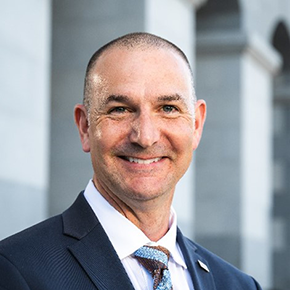
Graham Knaus
Graham Knaus serves as the Chief Executive Officer for the California State Association of Counties (CSAC) and the California Counties Foundation, representing California's 58 counties and their 296 elected Supervisors. Graham has spent his career working for California Counties including six years with Placer County as the County's Assistant Director of Health and Human Services and as the County Budget Director. Prior to that, he served as a Senior Fiscal and Policy Analyst for the County Welfare Directors Association and as a Legislative Advocate for a firm representing California counties. In addition to his role as CEO, Graham serves as Vice President of the CSAC Finance Corporation Board and the National Council of County Association Executives. Graham also sits on the Smart Easy Pay Board and the California Foundation on the Environment and the Economy (CFEE), as well as a variety of nonprofit boards. Graham received his Bachelor of Arts degree in political science/public policy from UC San Diego, and his Master of Public Administration from the University of Southern California. I am excited to join the ICH Advisory Committee as it's a critical venue to address the most defining issue of our time — homelessness. California has made significant strides on homelessness, yet sufficient, sustainable progress eludes us. I am relentlessly focused on attaining that progress for all communities struggling with this issue.

James Mackey
James Mackey brings a blend of personal insight and professional expertise to the Cal ICH Advisory Committee. As the Case Management Department Program Manager at Community Medical Centers (CMC), a large FQHC system in San Joaquin County, James oversees critical services for many individuals experiencing homelessness. His journey includes developing and leading the Transitions Clinic Network (TCN) program at CMC and working as National Program Manager at TCN, roles that equipped him with a deep understanding of integrated healthcare for vulnerable populations.
James's unique perspective is profoundly shaped by his own lived experience, including incarceration and a period of homelessness upon reentry. This background, coupled with the profound impact of his brother Donald's death after many years living on the streets of Stockton, fuels his unwavering commitment to systemic change and informs his understanding of the complex barriers individuals face. He holds Doctor of Health Science, Master of Social Work, and Master of Humanities degrees, underscoring his dedication to both academic rigor and direct service. James is excited to join the Advisory Committee to help shape statewide policies that ensure homelessness is rare, brief, and non–recurring, driven by a vision of equitable and compassionate solutions for all Californians.
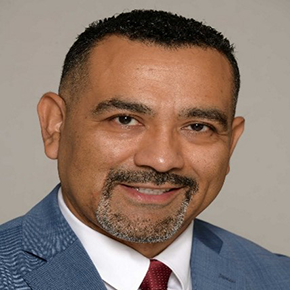
Alejandro Martinez
Alejandro Martinez is the President of CRCD Partners, LLC, where he leads strategic development initiatives focused on affordable housing and equitable community investment. With over 25 years in the housing and community development sector, Alejandro has worked extensively to advance solutions that promote stability, opportunity, and dignity for underserved populations.
Since entering the field in 1999, he has collaborated with public agencies, nonprofit partners, and private entities to expand access to quality housing and economic mobility across California. His work emphasizes long–term impact, sustainability, and cross–sector partnerships that move beyond temporary interventions.
Alejandro is honored to join the Cal ICH Advisory Committee and contribute to the broader effort to end homelessness statewide. He is excited to bring a practitioner's perspective to the table—grounded in implementation, policy alignment, and systems change.
He believes this Committee has the potential to bridge policy and practice in ways that deliver measurable, community–driven results. Alejandro looks forward to learning from his fellow members and working collectively to support a more just and effective response to homelessness in California.

Novalie McDarment
Novalie McDarment is an enrolled Member of the Tule River Tribe of California and has served as Executive Director of the Tule River Indian Housing Authority (TRIHA) since June 2022. She works with the TRIHA Housing Board of Commissioners and community to advance TRIHA's mission, overseeing all operations, programs, and budgets while ensuring regulatory compliance. Novalie also secures funding for affordable housing, maintains effective reporting systems for Board oversight, directs staff, and builds strong partnerships with vendors, contractors, and government agencies to support TRIHA's success.
Novalie also serves as the Tule River Tribal Representative on the Tulare County Homeless Taskforce, advocating for Tribal perspectives in regional housing and homelessness solutions. She is excited for her recent appointment as a member of the Cal ICH Advisory Committee and looks forward to contributing to statewide strategies to prevent and end homelessness. Novalie is honored to be part of this committee and is eager to work collaboratively to develop impactful policies and programs that improve the lives of California's most vulnerable communities.

Christina Mills
Christina Mills serves as the Executive Director of the California Association of Area Agencies on Aging (C4A). With more than 25 years of experience in disability rights and aging services, Christina is a nationally recognized leader committed to advancing policies that empower older adults and people with disabilities to live independently with the supports they need to thrive.
Throughout her career, Christina has worked to bridge the aging and disability communities, holding key leadership roles at the state and national levels. She previously served as the Senior Director of Inclusive Policy and Advocacy for Elevance Health and as the Executive Director of the California Foundation for Independent Living Centers (CFILC).
She has spearheaded groundbreaking initiatives, including California's first statewide emergency preparedness program funded by a utility company, and helped launch the state's Aging and Disability Resource Connections (ADRCs).
Her dedication to community–driven solutions, leadership development, and systems change has earned her national recognition as a passionate and effective advocate for equity and inclusion.

Lisa O'Connell
Lisa Brundage O'Connell is the Director of Enhanced Health Services at Partnership HealthPlan of California, a managed Medi–Cal plan that serves 24 counties in Northern California. She leads a team that oversees the CalAIM program, the Street Medicine and Community Health Worker benefits, as well as efforts on Transitional Rent, housing and community grants. She has been with Partnership seven plus years and before that worked at the Hospital Council of Northern California and Covered California. Previous work including educating providers on the Affordable Care Act. She is most excited to be able to participate in the Cal ICH Advisory Committee so that she can collaborate with others in finding solutions to the housing crisis. She believes in the importance of not only developing solutions to building and developing housing, but connecting people to supportive services, services that will allow them to stay housed. She has a BA from Lewis and Clark College and a Masters in Healthcare Administration from CSU Hayward.

Tunisia Owens
Tunisia M. Owens currently serves as the Policy and Advocacy Manager for the Family Violence Law Center. She is a passionate advocate on issues of domestic and sexual violence, economic empowerment, criminal justice reform, youth empowerment and education equity. Tunisia has served the public at non–profit organizations and government agencies in the Bay Area. She returned home to Oakland after a career as a diplomat proudly representing the US in Sub–Saharan Africa, the Middle East, and South America. Tunisia is excited to expand her work on repairing systems by serving on the Cal ICH Advisory Committee. She graduated from Spelman College in Political Science and Economics, holds a joint Master's degree from Princeton University in Public Policy and Urban/Regional Planning, and obtained her Juris Doctor from the University of California, Hastings College of Law.

Carolina Reid
Carolina K. Reid is the I. Donald Terner Distinguished Professor in Affordable Housing and Urban Policy in the Department of City and Regional Planning at the University of California at Berkeley, and the Faculty Research Advisor at the Terner Center for Housing Innovation. As the Faculty Research Advisor for the Terner Center for Housing Innovation, she supports the design and execution of the Center's research agenda. She oversaw the research and publication of CalICH's first Statewide Homelessness Assessment and is currently conducting research on Permanent Supportive Housing, CalAIM, and affordable housing finance. She is excited to join the council and help advance data and evidence–driven solutions to addressing the state's homelessness crisis. Before joining the faculty at UC Berkeley, Carolina worked at the Center for Responsible Lending and at the Federal Reserve Bank of San Francisco. She has a BA from Stanford University and an MA and PhD from the University of Washington, Seattle.

Alex Sánchez
Alex Sánchez (he/él) is a Mexican-American community advocate who grew up in rural parts of Fresno County. He started his work in housing justice and reform when he was a youth experiencing homelessness in rural and metro Fresno County. Alex experienced chronic homelessness and housing instability for several years. Along his journey, Alex used his lived experience to advocate for others who were also experiencing discrimination and violence within systems that were supposed to help those of us in need.
After three years of serving as LEAB Chair, Alex has recently accepted the position of Lived Experience Coordinator for the Fresno Madera Continuum of Care (FMCoC). This work is committed to restructuring the FMCoC system wide for the integration and incorporation of people with lived experiences of homelessness on all levels of the Continuum. Prior to this work, Alex had worked in Street Medicine providing people experiencing homelessness with mobile health services and enhance care management within Fresno & Madera County.
Alex's advocacy work also includes educating and advocating for policy changes on: equitable access to health care, anti-discrimination practices, reproductive health education, gender-affirming health care, and accessible mental health care. He served as a board member and Chair of Trans-E-Motion, the only trans specific organization within the Valley, offering resource navigation, low barrier emergency rental relief, support groups, gender affirming services, and many other resources. Alex has worked with young men of color to create safe spaces for brown and black queer men to learn, connect, and access health resources within California's Bible Belt, the Central Valley.
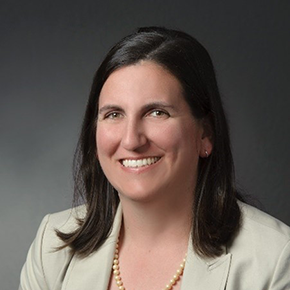
Adrienne Shilton
Adrienne is the Senior Vice President of Public Policy & Strategy, overseeing the work of the Policy Team. She is a recognized expert in behavioral health policy who has devoted her career to improving the well–being of people living with mental health and substance use conditions. Adrienne became involved in mental health policy as a staff person in the campaign to pass the 2004 Mental Health Services Act. For the past three years, she has directed the multi–faceted legislative and budget advocacy program of the California Alliance, from developing strategic policy goals, to lobbying, building effective coalitions and partnerships, and working with Departments and oversight agencies to effectuate policy changes that enable providers to better serve children and families in public systems.

Karla Thomas
Karla Thomas is of Samoan and Aymara descent from San Bernardino, Southern California (Serrano Land). She currently serves as the Executive Director of Empowering Pacific Islander Communities (EPIC), a national advocacy organization that advances social justice for Pacific Islanders in the U.S. through advocacy, leadership development, and research. In this role she served on a research advisory committee for an Asian American and Native Hawaiian and Pacific Islander (NHPI) Economic Well–being Study with Urban Institute and NCAPACD. While at EPIC she has also helped to convene over 100 NHPIs in Washington D.C. for the first White House NHPI Summit during the Biden Administration to advance NHPI policy issues. Prior to this role, she was Policy Director and co–founder of the NHPI Data Policy Lab at the UCLA Center for Health Policy Research. There, she led the development of a data policy platform to advance data equity for NHPIs. She is also an advocate in the Inland Empire as a co–founder of the Pasifika Inland Empire Coalition for Empowerment, which was established in 2019. She helped advance and improve county public health data disaggregation practices for NHPI populations, organized public health events, and led a program that provided direct income and resource support to NHPI households who were experiencing financial hardship and homelessness. In current and previous roles, she has served Pacific Islanders through advocacy, health education, fundraising and policy research. She holds a MPH from USC and a bachelor's of arts from UCLA.

Alex Visotzky
Alex Visotzky is the Senior California Policy Fellow for the Alliance, where he works to ground California's response to homelessness in best practices and evidenced–based solutions. Prior to working for the Alliance, Alex worked for five years in local government, where he served most recently as the Director of Government Affairs for the Los Angeles Homeless Services Authority (LAHSA), the lead administrative entity for the Los Angeles Continuum of Care (LA CoC). There, he directed LAHSA's legislative, policy, and community engagement work. Prior to joining LAHSA, Alex worked for Neighborhood Housing Services of Los Angeles County, where he advocated for local and state policies to advance equitable land use, affordable housing, and affordable homeownership. He has a BA from Oberlin College and an MPP from the Price School of Public Policy at the University Southern California.
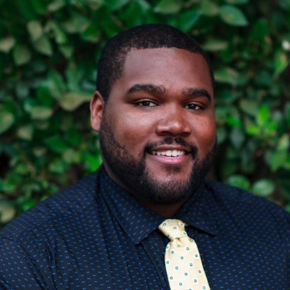
Jevon Wilkes
Jevon Wilkes is Executive Director of the California Coalition for Youth (CCY) and Director of Youth Engagement with the California Children's Trust (CCT). His visionary and compassionate leadership has unquestionably improved the lives of California's vulnerable youth through increased statewide funding, services, and programs in the areas of homelessness, workforce development, behavioral health care, child welfare, and juvenile justice.
At fourteen, Jevon experienced homelessness on the streets of Los Angeles, while involved in the foster care system. He attended his first CCY conference at the age of 15, and was immediately inspired by the change he could create by elevating the needs of youth like himself. In 2018, at the age of 28, Jevon became the Executive Director of CCY.
As the Executive Director of CCY, the only youth–serving organization in California that addresses policy and advocacy at the statewide level for youth experiencing homelessness, Jevon's bold ideas, collaborative spirit, and nonstop pace have made him an influential leader and sought–after advocate in his community. Jevon has strengthened CCY's infrastructure and financial capacity. In 2016, California was providing annual support of $2.8 million for services and housing for youth experiencing homelessness. Fast forward, and due in part to CCYs efforts, and Jevon's leadership, the state has invested an additional $340 million of one–time funds including more to youth.
Additionally, under Jevon's leadership, CCY runs the 24/7 California Youth Crisis Line (CYCL), managing 17,000+ calls/texts annually, and providing access to 5,500+ free or low–cost resources. Jevon has helped to increase volunteers from 46 to 140, with the majority being under the age of 25.
As a member of the leadership team at the California Children's Trust, Jevon has been an essential actor in setting and adopting a reform agenda in California that is unprecedented in size and scope. Specifically, Jevon's advocacy and leadership helped pave the way for the state's creation of a $4.4 billion youth behavioral health Initiative—an historical investment in the social and emotional welfare of children and pediatric primary care across child serving systems, including community–based alternatives to juvenile justice and child welfare.
Jevon has dedicated over 17 years of his life to service that improves and empowers the lives of California's most vulnerable youth to reach their full potential and thrive within loving communities. Drawing from this commitment he brings his professional and lived experience to several state advocacy tables including the Child Welfare Council, the Department of Health Care Services (DHCS) Proposition 64 Advisory Group, and the CalAIM Foster Care Model of Care Workgroup. He also participates on the Sacramento Homeless Youth Task Force, and The Grand Challenge with A Way Home America.

Roxanne Wilson
Roxanne V. Wilson is a Monterey County native and has been working to end homelessness in her community for over 10 years. Having begun her career in direct services with Community Homeless Solutions, Central Coast HIV/AIDS Services, and Catholic Charities, Roxanne eventually landed at the Coalition of Homeless Services Providers – Monterey and San Benito Counties' Continuum of Care (CoC) lead agency. During her term at the CoC, Roxanne led the community in several efforts like the federal 100 Day Challenge to End Youth Homelessness, operating the County's second iteration of Project Roomkey, releasing the Lead Me Home 5 Year Plan to Reduce Homelessness by 50%, establishing a Youth Action Board, and hosting the very first Monterey County Summit on Homelessness. As the Executive Officer of the CoC, she played an integral role in substantially increasing funding for homeless services through HUD's Youth Homeless Demonstration Program, the Family Challenge Grant, the Encampment Resolution Fund and several Project Homekeys. Most recently, Roxanne joined the County of Monterey as their newly created Homeless Services Director where she will focus on bridging services of many departments to form a robust and comprehensive approach to addressing the local homelessness and housing crises.



